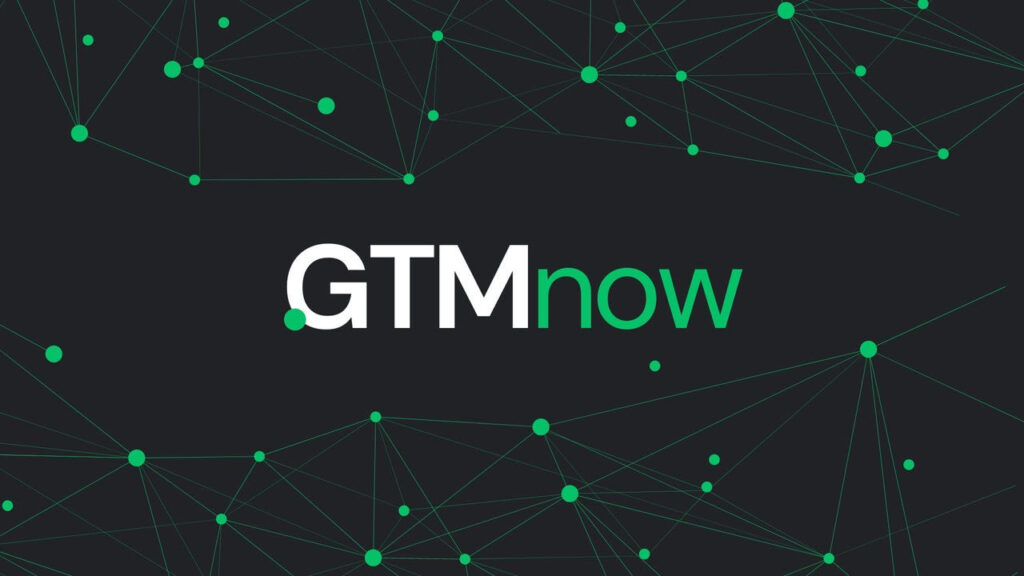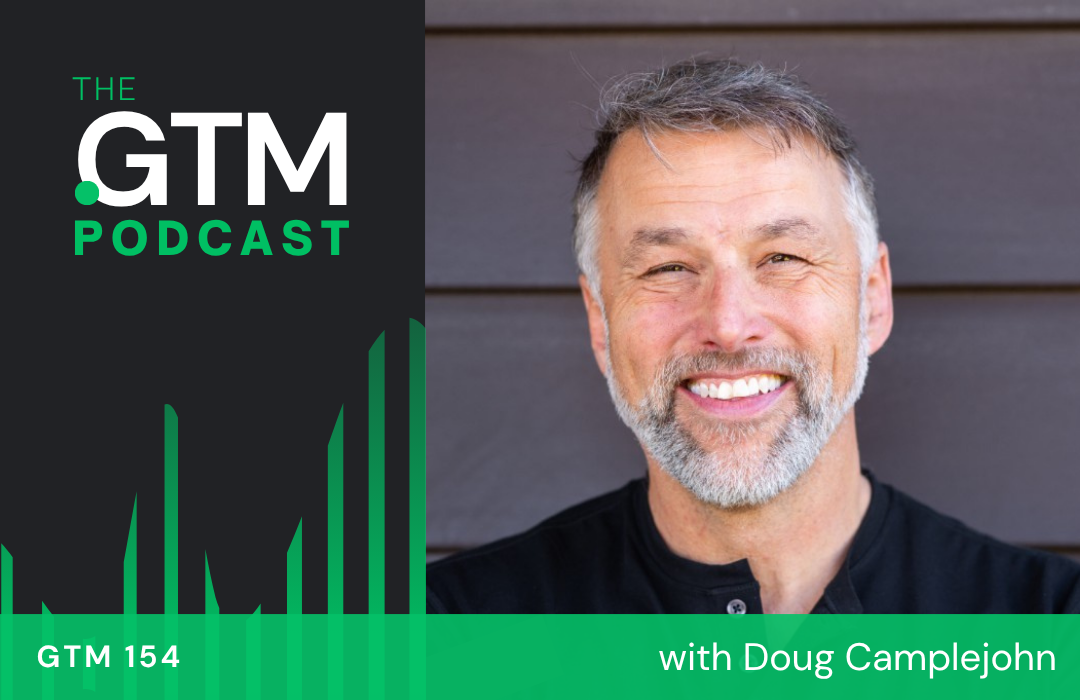This video training was originally presented at the 2019 Sales Hacker Success Summit. In it, Chief Strategy Officer and Sales Leadership Coach at Alice Heiman, LLC, Liz Heiman, shows you how to ask the right questions to close even your toughest deals.
What You’ll Learn
- The benefits of slowing down
- 9 Sales Hacks for the beginning of your sales process
- 10 Tough Questions to help you close
The Video
ADD_THIS_TEXT
Download the 4 P’s of Account Management Cheat Sheet Here
Outline, Timestamps, and Transcript
◉ Slow Down to Go Faster (00:00)
◉ 9 Sales Hacks (01:41)
◈ Create an ideal customer criteria (02:18)
◈ Manage your funnel (03:15)
◈ Do your research (04:37)
◈ Know your customer (05:30)
◈ Ask great questions (06:25)
◈ Solve problems (07:15)
◈ Watch buying signals (07:58)
◈ Learn the buying process (08:29)
◈ Prepare for the close (09:17)
◉ 10 Questions (09:56)
◈ How will our solution meet your needs? (10:12)
◈ What other solutions have you considered? (10:36)
◈ Who will be involved in making the decision? (11:02)
◈ What is the best way to include everyone in the decision-making process? (11:32)
◈ What is your budget? (11:58)
◈ On what factors will you make your decision? (12:27)
◈ What is your timeline for implementation? (13:01)
◈ What’s your timeline for making a decision? (13:19)
◈ Is there anything else we need to discuss? (13:40)
◈ What are our next steps? (13:59)
◉ Key Takeaways (14:18)
Slow Down to Go Faster (00:00)
Welcome to Sales Hacker’s Success Summit. I’m Liz Heiman, chief sales strategist at Regarding Sales by Alice Heiman, LLC. Asking the right questions to close the deal is what we’ll be talking about today.
My goal is to take the mystery out of selling. There’s nothing magical about sales, except perhaps the relationship between the buyer and the seller. The rest is a well-planned strategy and process to find, qualify, and close business.
I’m going to be talking primarily about selling in a complex business-to-business selling situation. That means you’re selling something expensive or complex, that may change the way things are done. If that’s the case, chances are, you have a long sales cycle and a lot of people involved in the buying decision.
Don’t despair. We’re here to help.
Don’t you hate when you get to the end of the sale, you’re ready to close, and suddenly the whole process slows down? If you weren’t well-positioned to close the deal, nothing you say is going to make that deal close. That’s why I say the best hacks happen at the beginning of the sale.
Remember that old adage, you need to slow down to go faster?
I know, slowing down is the last thing you want to do when you’re trying to close deals to meet quota. But, if we slowed down at the beginning of the sales process and cover the bases, the end of the sale should go a lot smoother. That’s why the best sales hacks happen at the beginning of the sales process.
Let me share a few of my favorite hacks with you.
9 Sales Hacks (01:41)
I have to tell you before we start, I’m not your typical hacker. Don’t get me wrong, I love good tips and shortcuts that make my life easier, and I’m endlessly searching for tools that automate time-consuming activities. But when it comes to a business-to-business complex sale, taking shortcuts in the sales process can be a huge mistake.
Shortcuts can result in missteps that are likely to lengthen your sales cycle and maybe even lose you a deal. So for me, hacks are more about doing the things that you absolutely need to do from the very start until the deal is closed.
Sales Hack 1: Create an ideal customer criteria (02:18)
First, create an ideal customer criteria. Like most of you, I love hacks that keep me from wasting time, and nothing is worse than wasting time on the wrong prospects. One way to prevent that is to create a set of criteria that helps you determine if the client is going to be a good fit or not. We call that an ideal customer.
Look for indicators like health of business and continuity. Use psychographics like philosophy and behaviors. The best way to create an ideal customer criteria is by using data on existing clients. Which customer had the shortest sales cycle? Which bought the most? Which grew over time? Which use more than one product or keep renewing?
Instead of guessing, use your company data to create a profile based on facts, not intuition.
Sales Hack 2: Manage your funnel (03:15)
Hack number two, manage your funnel. One of the most important things a salesperson can do is properly prioritize activities and allocate time.
Save time by spending your time where it matters most. Remember that important and urgent are not the same thing, and when you only focus on the urgent, you make missteps and mistakes on the things that matter most.
Use your funnel to prioritize your selling work. Remember that your first priority is closing business.
Your second priority is filling the top of the funnel, and then qualifying. You’ll spend most of your time, however, verifying or covering the bases.
Set aside time every day for top-of-funnel activities. Make sure you’re following your sales process when you’re covering the bases so you’re asking the right questions and taking the right actions — in front of the right people — to move the sale forward in such a way that it will close when the time is right.
Managing your funnel means looking at your funnel regularly to make sure that it’s the right shape and has enough leads in the top of the funnel to get you the closes you need coming out the bottom. Make sure that opportunities are moving through with the right velocity. And if they’re not, take a good look at what steps you might have missed that could result in slow movement.
Sales Hack 3: Do your research (04:37)
Number three is do your research. The more you know about your customer, the better. What things do you need to know about the company, people, or industry before you reach out?
Do you know their mission, values, vision, history?
Do you know their most important initiatives this year?
Is there news about them that might impact their priorities?
Just because you already have contact, and possibly a relationship, don’t stop researching your prospects. Keep an eye on what they’re writing about, what’s being written about them, and what’s going on with their customer’s industry that might impact them. All of that matters.
Also, look for clues about what things have happened in the past that might make them wary. Why are they looking for this solution now? What’s changed? While this may seem time-consuming, it will actually save you a ton of time in the long run.
Sales Hack 4: Know your customer (05:30)
Number four, know your customer. Truly understand your customer. You may already know what they want to buy, but do you know what they want to achieve personally and professionally?
Remember that each person involved in the buying decision has their own concerns, goals, and point of view. What you talk to each person about will vary depending on what matters most to them.
If you have multiple people involved in the decision, you need to know what matters to each of them. The better you know your customer, the easier it is to present only the information that’s relevant to them. It will simplify the discussion and keep the customer focused and more engaged.
When you distract your customer with things that don’t matter to them, or miss things that do matter to them, you’re opening the door for your competitor to be more successful.
Use the time you have wisely. You don’t have time to waste.
Sales Hack 5: Ask great questions (06:25)
Be curious, ask great questions, and listen, really listen. Understanding your customer is critical to your success. So the most important thing you can do as a salesperson is to ask good questions. They get your customer talking about what matters to them, what might not work, what obstacles need to be overcome, and what process they need to go through to buy.
The smartest thing you can do is give your customer all the time they want to talk. If you let them, they’ll probably tell you everything you need to know to close the deal. Write down what they say. Don’t interrupt. Don’t plan your answer, and don’t forget to breathe.
I’m going to give you the top 10 tough questions you need to ask in just a few minutes.
Sales Hack 6: Solve problems (07:15)
Make sure your solution is solving a problem for your customer. As salespeople, we tend to make two big mistakes. First, we assume that we have something great and that our customers must want it. Second, we assume that our customer cares about our product, what it does, and how it works.
Your customers care that they have a problem. They want to know if you can solve it for them. The how doesn’t come into the conversation until later. Make sure your solution is a good fit. Tell them if there’s a mismatch, and see if you can find a work-around. Ask questions to let you know if it’s a good fit.
Don’t avoid the question that you don’t want to hear the answer to.
Sales Hack 7: Watch buying signals (07:58)
Watch your clients’ buying signals. Are you in step with them, or have you gotten ahead of them? If you get too far ahead, the sale will slow down.
Ask for clear next actions along the way so you’re clear about where they are in their buying process, and make sure the sale doesn’t get stalled. Each meeting should end with an agreement on your next action and their next action with an agreed-upon date. You can even send a calendar invite, but pay attention to what they’re telling you about how fast they want to move.
Sales Hack 8: Learn the buying process (08:29)
Learn the buying process. Make sure you fully understand your customer’s buying process. Every company has its own buying process that could vary by department, by type of product, or by price of purchase. Your customer may not know what steps they need to go through to make the purchase. You may need to help them discover their own process, which means you need to know what questions to ask and who to ask them to. Be sure to find out.
What is their timeline? Who’ll be involved? Who else will be affected by the purchase? What processes will the purchase impact? How flexible is the budget? Who approves the budget? Who will sign the contract? Will legal need to review the contract? Create a list of these critical questions and keep them in front of you. Make sure you get the answers.
Sales Hack 9: Prepare for the close (09:17)
And 10 is to prepare for the close. There’s no magic closing question. There’s no magic closing activity. In fact, there’s nothing magic about closing a deal. If you’ve done your homework all the way through the process, you will know when it’s time to close, what you need to say, and what needs to happen next.
If the customer needs a solution you have, and they need it in place by a certain time, then the process to get there can be established. If you haven’t done all your homework, if you’ve missed steps, if they don’t have a timeline, and they aren’t ready to close, you probably won’t be able to change that.
10 Questions You Need to Ask (09:56)
Now that you know what you need to do to position yourself for the close, let’s look at the questions that need to be asked and confirmed, repeatedly, from the very start through the entire sale, to prevent surprises when you think it’s time to close.
Question 1: How will our solution meet your needs? (10:12)
It doesn’t matter how great you think your solution is, if it doesn’t meet the needs of the customer, it isn’t a good decision for them.
Take time to understand your customer’s needs. Explain the connection you see between their needs and your solution. Then ask them how it fits their needs from their perspective.
Question 2: What other solutions have you considered? (10:36)
Pretending there’s no competition is akin to turning your back on a wave. If you’ve ever lived near the ocean, you know that that’s never a good idea. Face it straight on.
Ask the question, then ask again in a few weeks or months to make sure nothing has changed. Understanding your competition helps you position yourself better. Pretending there is no competition leaves you in a precarious situation.
Question 3: Who will be involved in making the decision? (11:02)
I often hear salespeople talk about “my guy.” Do you know him? That’s the one buying influence that you’re in touch with regularly that’s orchestrating this purchase. While having “that guy,” hopefully your coach, is great, it isn’t sufficient.
Winning complex deals consistently requires knowing who all the decision makers are and building relationships with as many as possible.
Question 4: What is the best way to include everyone in the decision-making process? (11:32)
Your guy is a great person to help you build bridges to the people who need to be involved. Often, that person will feel they are in charge of the sale and may want to prevent you from getting in touch with other influencers.
If you phrase the question properly, you may be able to engage them to help you engage the rest of the buyers. Make sure you ask.
Question 5: What is your budget? (11:58)
Budget is not a bad word. Often, sellers feel the moment they tell you their budget, you’re going to raise your price. Work with your buyer to understand what they want, and what kind of budget they will need to get what they want.
Talk about budgets early and often. Avoid surprises.
If they truly don’t have a budget defined or allocated, ask them how that budget will be determined and walk them through the process of getting it approved.
Question 6: On what factors will you make your decision? (12:27)
Depending on who you’re talking to, they may not know what criteria will be used to make the decision. Walk them through the process of figuring out what criteria they need to apply, and then ask for their help determining what everyone else’s criteria will be.
Understanding their criteria will let you know whether or not you have a fighting chance to get the deal. If you don’t meet the criteria, you either need to help them change the criteria or go find a better lead.
Question 7: What is your timeline for implementation? (13:01)
Knowing when the project needs to be done is important in helping to drive the sales process.
If they don’t have a timeline, figure out what factors would impact a timeline and help them develop it. Figure out what needs to happen on your end to meet that timeline.
Question 8: What’s your timeline for making a decision? (13:19)
There’s often a mismatch between the decision-making timeline and the completion timeline.
Make sure your customer understands all the things that need to happen to get the project completed. If their decision-making timeline will prevent completion, work with them to redefine timelines.
Question 9: Is there anything else we need to discuss? (13:40)
Just because they haven’t brought it up doesn’t mean there aren’t important issues that still need to be discussed. As salespeople, we often don’t give them the chance to add anything that isn’t on our question list.
Don’t be afraid to ask. Then sit quietly while they think about it.
Question 10: What are our next steps? (13:59)
This should be the most common question you ask. This should happen before the end of each conversation.
Agree on next actions for everyone involved, set a timeline, and put a next conversation on the calendar.
Key Takeaways (14:18)
There are no magic words that close a deal. If you use the hacks and ask the questions, you should be well-positioned to close the deal.
If they said they want it and have a budget and a timeline, then you know when that contract needs to be signed and payment made in order to get what they want. When the time is right, asking for that contract and payment should be natural.
If you’ve enjoyed what we’ve talked about today and you’d like to have further discussions, let’s connect. You can either email me, liz [at] aliceheiman.com or connect with me on Twitter or LinkedIn.
And if you connect with me and let me know where we met, I will send you the 10 Tough Questions To Close The Deal download. I hope you guys had a great time. I know I did. I’m looking forward to talking to you soon. Have a great day and happy selling.







